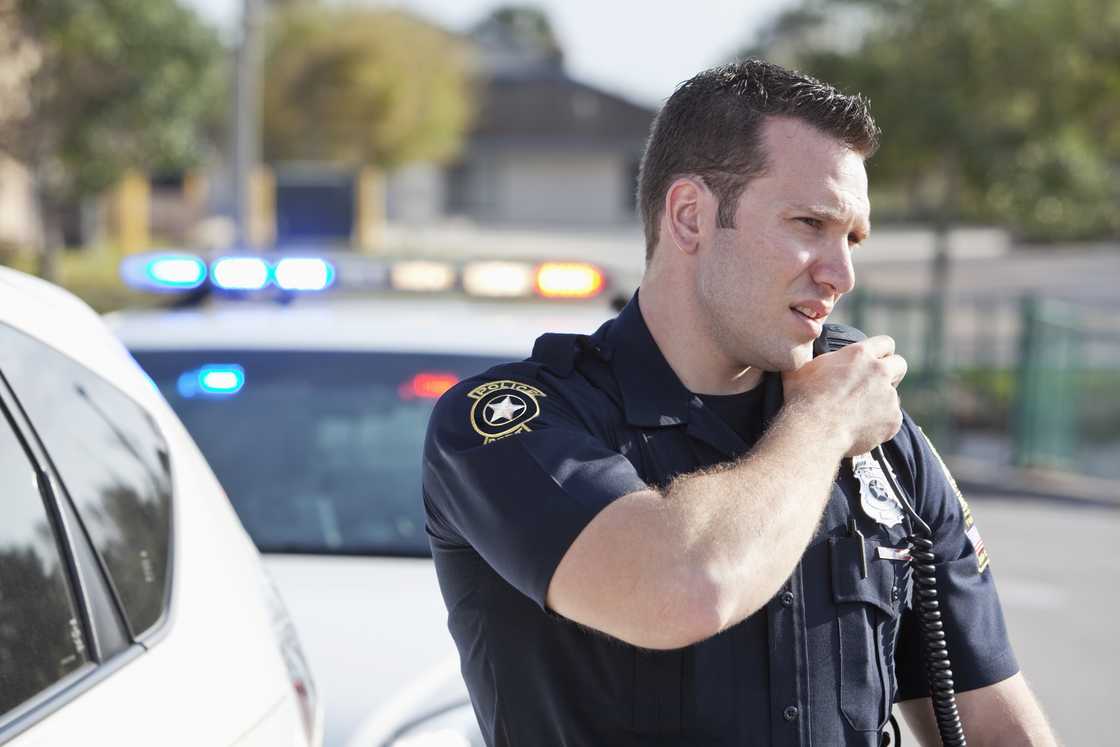What does 10-4 mean? Learn about the origin and different meanings
In real life, police use codes and particular words to communicate, not just in TV shows or movies. They have used these codes since the 1920s to communicate clearly on radios. Every police department has its codes, but most officers also use common phrases, regardless of where they work. One code that has brought excitement on social media is 10-4. What does 10-4 mean, and what is its origin?

Source: Getty Images
TABLE OF CONTENTS
For a long time, the military and police have used secret codes to communicate. These codes were more difficult to decode during the World War 1. Messages were sent in codes using different methods, such as telegraphs, signal lights, messenger dogs, carrier pigeons, or early radios, to keep important information safe from enemies. Among them is code 10-4. For this reason, many are eager to know, "What does 10-4 mean?"
What does 10-4 mean?
10-4 is a code used in law enforcement, especially in radio communications. Apart from law enforcement, this code is also used by truck drivers and military personnel. It originated from the 10-codes, a system of abbreviated radio signals developed initially by law enforcement and emergency services.
What does 10-4 actually mean? In the police system, "10" is a general prefix, and each code has a specific meaning. "10-4" is one of the most widely recognised codes, meaning "message received,' or "understood." It helps the recipient acknowledge that they understand what is being said.
Where does 10-4 come from?

Source: Getty Images
The history of the 10-4 code dates back to the 1930s. The phrase 10-4 comes from a system called the 10 codes used by radio operators, especially those in emergency services or law enforcement. For many years, police officers mainly used radios to talk to each other.
In the late 1930s, Charles Hopper, who worked with the police in Illinois, thought of a way to talk faster on the radio. He created a set of shortcodes called "10-codes." These codes helped officers say things quicker when they used the radio, with each code having a different meaning.
It took time for everyone to start using these codes, but by 1940, they became common among the police force. Even though the 10 codes were still there, fewer people used them in the 1960s.
In the 1970s, people were proud of their working-class jobs, and a popular singer named C.W. McCall released a song called Convoy. This song portrayed how truckers talked on their radios, bringing the 10 codes into the spotlight. In 1978, a movie called Convoy was released, making the 10 codes even more well-known to the public.
What does 10-4 mean in the military?

Source: Getty Images
What does the 10-4 slang mean in the military? This code still means the person being informed has understood the message. For example, "Soldier: "Command, this is Alpha Team. We have secured the perimeter. "Command: "10-4, Alpha Team. Hold your position and await further instructions." Soldier: "10-4, Command. Holding position."
What does 10-4 mean in the police code?
When used by the police, this code shows that the two officers communicating understood each other. For instance, if someone said, "Officer Clifford, you're needed at the Hilton Hotel downtown," the response might be, "10-4. I'm on my way."
The other example is an officer communicating with another, informing them of arriving at a scene. For instance, Officer Smith: "Dispatch, this is Officer Smith. I've arrived at the scene. "Dispatch: "10-4, Officer Smith. Please proceed with caution."
What does 10-4 mean while used by truckers?
Truckers use 10 codes to communicate quickly and efficiently over their radios while on the road. Many codes are used during this process, such as 0-1: Receiving poorly, 10-2: Receiving well, and 10-3: Stop transmitting. However, the 10-4 code constantly means "OK, message received or understood."
What does 10-4 mean in slang?
The 10-4 signal means "OK" as a slang term. After the person you relay the message to has responded, you are only obligated to react again if you want to pass on other information.
What does 10-4 mean in texting?
Recently, this code has been used in positive affirmation. If someone sent you a text message with the code 10-4, it meant it was "Over and Out'. Over means that all your problems have ended while out, implying that God is bringing you out today. You are out to new beginnings, out of debt and sicknesses.
What does 10-4 mean? This code means "I understand", I got you", or "OK'. It is used by different people, such as the police, military, and truck drivers, in their communication. Like many other codes, the 10-4 code makes communication easy, especially in emergencies.
Yen.com.gh recently published an informative piece on how to read a tape measure in inches and centimetres. A tape measure is a flexible ruler used to measure length or distance. It comes in various materials, including plastic, fibreglass, a cloth ribbon, or, most commonly, metal strips.
A tape measure is a standard measuring tool used in construction with linear measurement markings. If you want to learn how to read a tape measure correctly, you should know the meanings behind its markings in this article.
Source: YEN.com.gh




